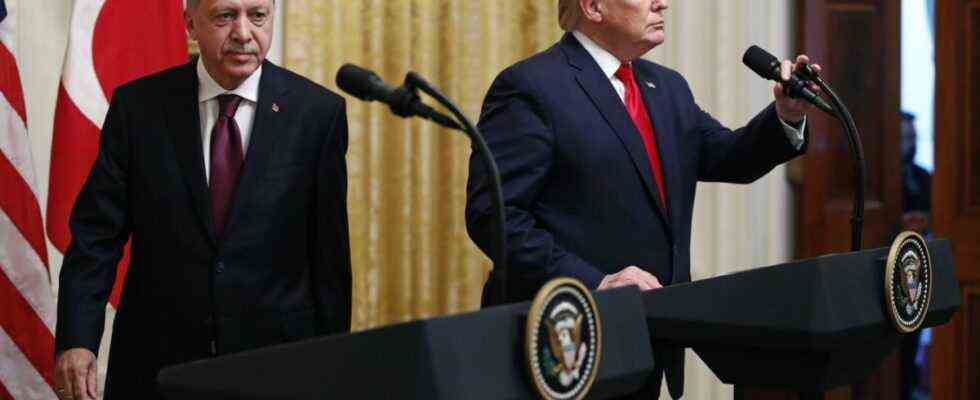In January, shortly before US President Joe Biden took office, the leading Democratic think tank published a report on the “Issues in the Turkish-American Relationship”. The Center for American Progress paper described so many issues on which Ankara and Washington were at odds – from human rights to armaments policy to regional conflicts – that one could certainly have doubts as to whether they actually came from two NATO allies There was talk or of two warring states.
The current upheaval was sparked by a human rights case, the imprisonment of civil rights activist Osman Kavala by the Turkish judiciary. The US ambassador to Ankara, David Satterfield, along with other Western ambassadors, had requested his release in a letter. It was undoubtedly an interference in Turkey’s internal affairs.
On Saturday, Turkish President Recep Tayyip Erdoğan announced that he would declare ten ambassadors undesirable, including the US representative. This escalation adds a new dimension to the conflict. But it had long been foreseeable that relations between Ankara and Washington were heading for a low point.
There had already been tensions under Biden’s predecessor, Donald Trump. The decision of the Turkish President Recep Tayyip Erdoğan, instead of the American one patriotMissiles the Russian air defense system S-400 buying had caused considerable annoyance in the US. On the one hand, it was politically a strong kick on the shin of NATO. On the other hand, the American arms industry missed a major order. And thirdly, the Pentagon feared that by doing that S-400System was integrated into the air defense of a NATO country, could gain knowledge of the radar signatures of American fighter planes – knowledge that would endanger the lives of western pilots in the event of a conflict.
But the US protests were of no use, and Erdoğan did not stop the purchase. In response, the US imposed sanctions on Ankara and kicked Turkey out of the program to build the F-35, the most modern western fighter aircraft. Ankara originally wanted to buy up to 100 of these jets from the US company Lockheed Martin and had already paid 1.4 billion dollars in advance. Erdoğan now wants older American fighter planes of the type for this money F-16 get delivered.
Ankara’s role in the many regional conflicts in the Middle East has also repeatedly led to disputes with the United States. Who the two governments viewed as enemy and who as ally was not always congruent. For example, Kurdish groups that fought against the “Islamic State” in Syria were freedom fighters from Washington’s point of view, but terrorists from the Turkish point of view.
Even after the change of government in Washington, the relationship did not ease, on the contrary: the Biden administration is more inclined than the Trump administration to criticize human rights violations in Turkey. Only shortly after taking office, in April 2021, the new US president angered his Turkish colleague by officially calling the mass murder of the Armenians in the Ottoman Empire during the First World War “genocide”.
Turkey has admitted that the Christian Armenians were persecuted at that time and died in large numbers. But Ankara has never committed itself to a planned genocide, and the US has always avoided the term. That Biden was using it was a provocation for Erdoğan.
The reservoir of goodwill was therefore largely empty in both Washington and Ankara when the Osman Kavala case became acute. Should Erdoğan actually expel the US ambassador from the country, that would de facto be the final break in relations.

